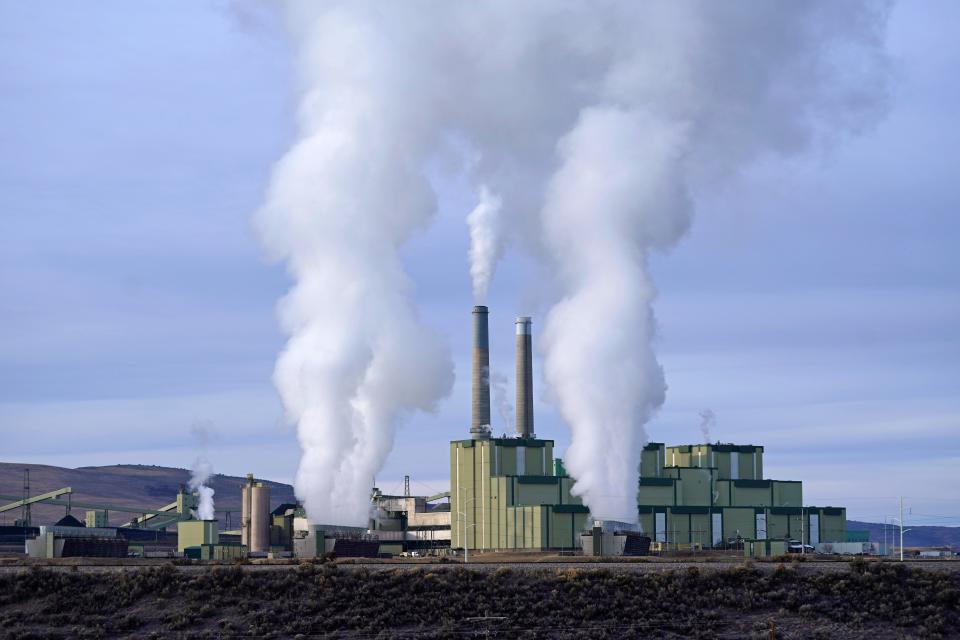Permit reform necessary to mitigate worst effects of climate change | Opinion
For 30 years I was an attorney for the Tennessee Department of Environment and Conservation and its predecessors. I tried cases against polluters, I wrote environmental laws that were enacted, and I worked at the General Assembly to pass new environmental laws and resist changes in Tennessee’s laws that would be less protective of people and the environment. I find it ironic that I now know that in order to avert the worst impacts of climate change, our national, state and local laws on environmental permitting must be changed.

You may have heard that last year Congress passed the most significant climate change legislation ever, in both the partisan Inflation Reduction Act and the Bipartisan Infrastructure Law. You might also have heard that the actions incentivized by these acts will reduce carbon emissions from 2005 levels by 40% by 2030. What you probably don’t know is that without permit reform, greenhouse gas emissions will actually increase between now and 2030. The apparent contradiction between those two sentences is because the modeling of the legislation assumed no impediments to construction of the clean energy projects encouraged by the legislation or to connecting them to the grid.
Hear more Tennessee voices:Get the weekly opinion newsletter for insightful and thought-provoking columns.
Unfortunately, the permit process is a major impediment. There are currently projects in the approval process queue for approximately as much energy as is used in the U.S., i.e., one terawatt. The approvals required are at four levels: national (it takes on average 4.5 years for federal agencies to prepare an environmental impact statement); regional via transmission organizations that operate the grid (In September, two of those RTOs had projects totaling over 240,000 megawatts); state environmental permits; and local zoning requirements and other restrictions like set-backs and moratoria. Close to home, in its rationale for the decision to convert the Cumberland coal plant to natural gas, the Tennessee Valley Authority cited the lengthy permit process for needed transmission lines.

For the last decade, the rate of new construction of transmission lines has been about 1% per year. A study recently found that it takes on average about 10 years to complete a new transmission line. According to an analysis by Princeton, “Over 80% of the potential emissions reductions delivered by IRA in 2030 are lost if transmission expansion is constrained to 1%/year. …” To achieve the full benefit of the Inflation Reduction Act, that rate needs to be increased to 2.3%. If electricity transmission growth continues at the 1% rate, power sector emissions will increase significantly as gas- and coal-fired power plants produce more to meet growing demand from electric vehicles and other electrification spurred by the IRA.
I get why my friends in the environmental community fear permit reform. It has often been used as code for lowering environmental standards. Also, some of the hurdles required by environmental permitting have been the best tools environmentalists have used to stop projects that would have been detrimental to communities (like Interstate 40 through Overton Park in Memphis). However, when it comes to the fast action necessary to achieve anywhere close to net zero greenhouse gas emissions by 2050, these same laws may prevent our reaching the goal Congress has put us on a path to reach.
I am a volunteer with the Citizens’ Climate Lobby, and we have made clean energy permit reform one of our policy goals for 2023. We applauded U.S. Sen. Bill Hagerty for his bill targeting permit reform for the semiconductor industry. As Tennessee CCL members continue to work to build the political will for a livable planet for everyone now and in the future, we look forward to working with Hagerty and U.S. Sen. Marsha Blackburn as well as Nashville’s three members of the House to find ways to make the needed changes to permit processes without limiting communities’ ability to be heard or weakening environmental standards. Permitting reform will help strengthen our grid, make us energy independent and make our communities more resilient, something I think we can all agree on.
Alan Leiserson, a Nashville resident, is the state coordinator for the Citizens' Climate Lobby.
This article originally appeared on Nashville Tennessean: Opinion: Permit reform vital to mitigate effects of climate change

